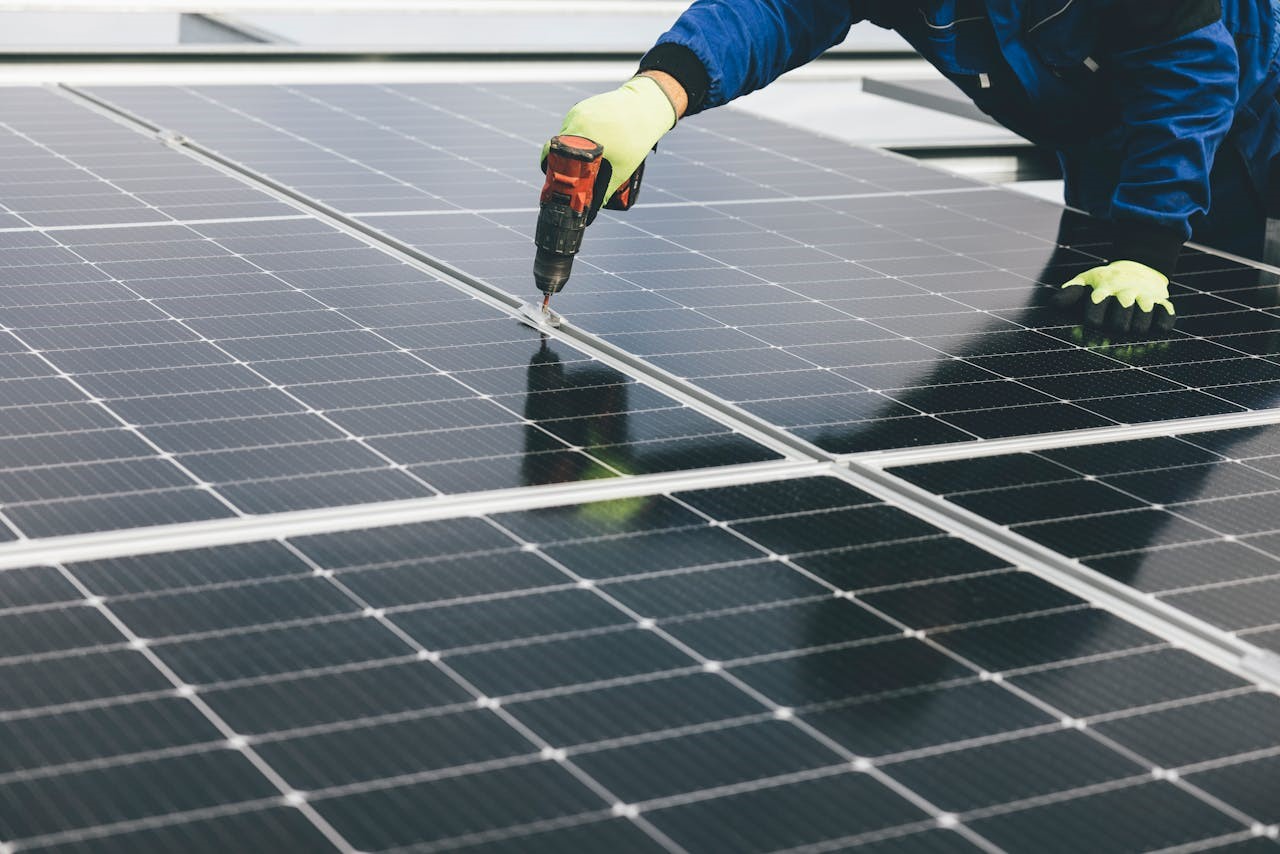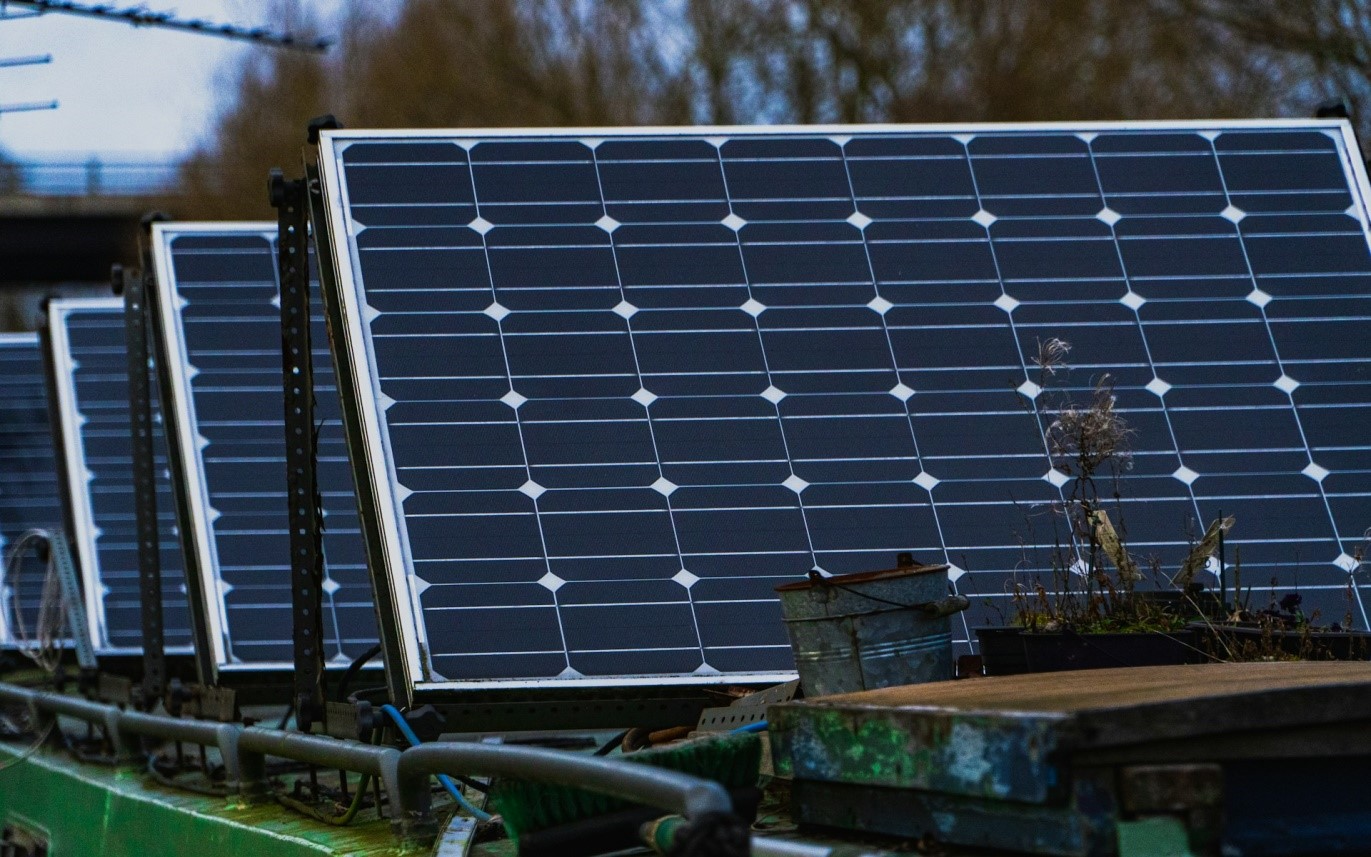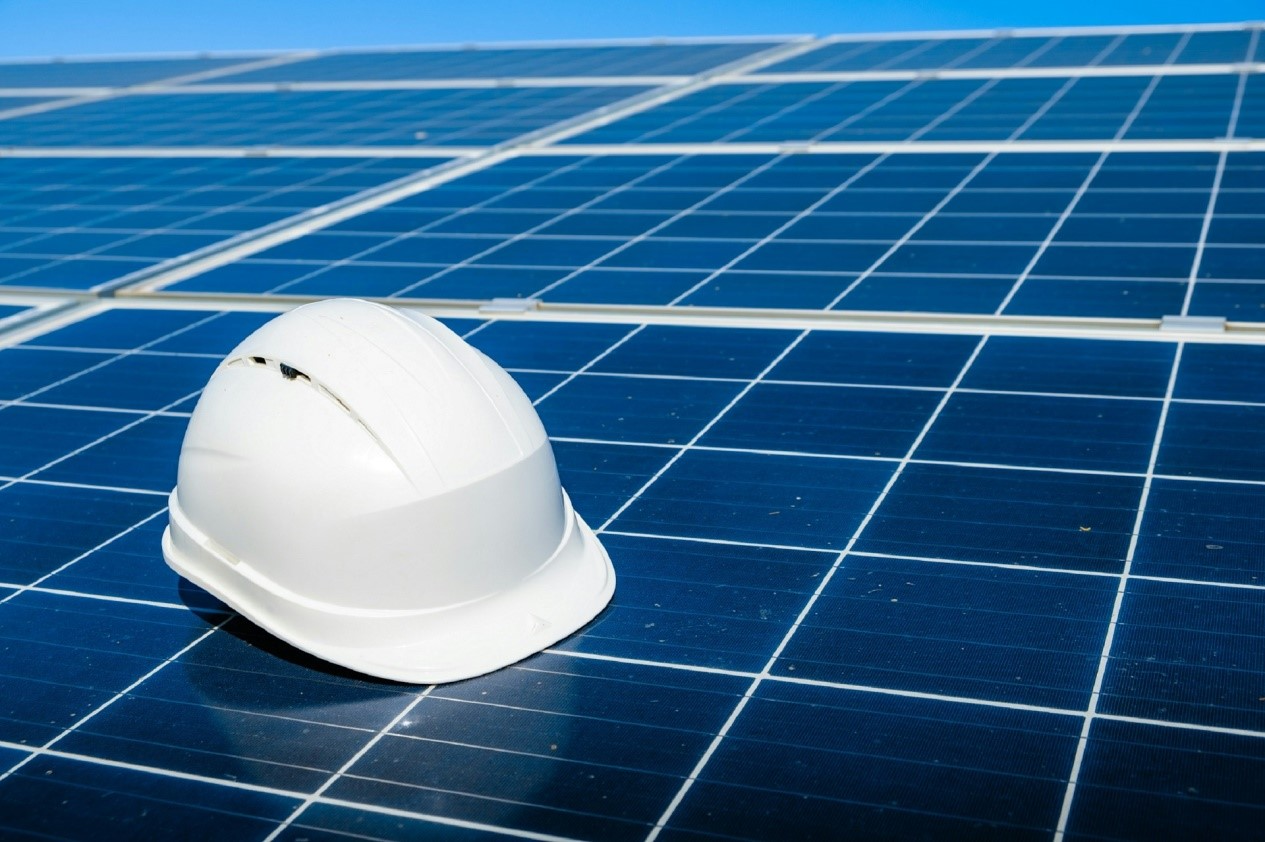Off-Grid Solar System in Pakistan
Have you come across the term ‘off grid solar systems’? What does it mean, how does it benefit you, and are there additional solar setups that you should consider?
In this guide, we’ll be answering all these questions. For a brief breakdown of what an ‘off-grid’ system for solar power means: it is a setup that functions independently from the main electrical grid. Moreover, it uses solar energy as a sustainable energy source for remote locations or areas with inconsistent grid access.
You can now easily buy solar panels in Pakistan for an off-grid system to fulfill your unique energy requirements. However, as compelling as it may seem, an off-grid system may not be ideal for everyone. It is a beneficial setup in modern times where non-sustainable energy sources are depleting, but the functionality has both upsides as well as limits. Let’s discuss!
The Basics of an Off-Grid Solar System in Pakistan
An off grid solar system is self-explanatory, as you are not only installing solar panels and other components to harness energy from sunlight, store, and use it. Moreover, you are also ‘off the grid’, not connected to any local lines such as those facilitated by WAPDA.
When first setting out to install a solar system, you will find various off-grid solar system packages in Pakistan. Your choice depends on your energy usage—but you also need to consider whether this is the system for you. Generally, an off-grid system is suitable for the following:
- Communities in rural and remote areas that lack access to the national electricity grid.
- Agricultural business individuals who need a reliable power supply but are off the grid.
- Homeowners or small businesses that need an off-grid solution for select appliances.
- Outdoor enthusiasts and trailer owners who need freedom from the local grid.
That said, the right size and proper installation are essential, whether you are going for a 3kW or a 10kW solar system price in Pakistan. Start by consulting a qualified solar installer—and cover more basics of an off-grid solar system in the meantime.
Key Components of an Off Grid Solar System
To know how modern off-grid systems operate, familiarize yourself with this system. For a fully functional, effective off-grid solar setup, several components are required, including the following:
1. Solar Panels
Of course, the first thing you need is something to harness sunlight which can then be converted into electricity. Solar panels are installed on the roof or in an open, wide area. An off grid panel serves as the main (sunlight) energy capturing source.

2. Charge Controller
A charge controller manages the electricity flow from the solar panels to the batteries. It safeguards against overcharging and deep discharging, helping to extend the batteries’ lifespan and ensure they work efficiently.
3. Supporting System
This includes other components that are vital for proper and safe installation and working of the off grid solar system, such as mounting structures, wiring, and safety tools to protect against electrical hazards.
4. Inverter
An inverter changes the direct current (DC) from the batteries into alternating current (AC), which can then be used to supply power to the devices and appliances on your property.
5. Batteries
Batteries store the excess energy generated by solar panels during the day, making them available for use at night or during cloudy weather. Typically, these are sizable and come in different sizes as per the user’s electricity requirements.
6. Backup Generator
What if there is often not enough energy stored in batteries? Then, a backup generator has to be a part of an off-grid solar system in Pakistan. This supplies extra power during extended periods of low sunlight or when energy demand is quite high.
7. Monitoring System
A monitoring system enables you to keep an eye on the status of your off grid solar system. It offers valuable information about energy production, battery health, and overall performance.
How Off Grid Solar System Works
Solar panels are placed on rooftops or in open areas on a supporting mounting structure. An off grid solar panel is made up of photovoltaic cells that transform sunlight into direct current (DC) electricity. When sunlight strikes the solar panels, it releases free electrons, generating an electric current. From there on, the solar system works methodically to convert and supply (or store) energy:
- Solar panels generate DC energy, which is then sent through the batteries to the inverter for conversion to a usable form.
- Next, the inverter converts the electricity into alternating current (AC) for everyday household appliances and electronic devices.
- Additionally, the batteries store any extra electricity produced during the day for power supply for nighttime or cloudy weather.
Additionally, a charge controller manages the electricity flow from the solar panels to the batteries. By including a monitoring component, such as a 5kW solar system with net metering in Pakistan, you get to keep an eye on the energy flow, excess, and storage, and check if the system matches your electricity needs.
Comparing On Grid and Off Grid: Which Solar System Is Right For You?
The most obvious difference between off-grid and on-grid solar systems as we have covered is the link to the electrical grid. The on grid solar system is ‘grid-tied, while off-grid systems operate independently. However, there are other differences too:
Access to Electricity
An off-grid system operates independently. Since it doesn’t rely on the local electricity grid, it needs a large battery backup to store any excess energy generated during the day.
An on-grid system, on the other hand, is connected to the utility grid. This setup ensures that there is power available even if your solar system is not generating enough electricity as per your needs.

Power Outages
An off grid solar system, not relying on local grid lines, remains unaffected by any power outages. You always have access to electricity, regardless of electrical issues (load shedding or otherwise).
An on-grid system relies on the grid for power. Unfortunately, during a power failure, your on-grid system will also shut down to ensure the safety of utility workers in charge of repairs and maintenance.
Service & Electricity Bill
An off-grid system doesn’t utilize any electricity generated by the grid, and won’t receive an electricity bill. However, the initial investment is higher due to the cost of the battery bank required for storage.
An on-grid system is linked to the power grid, using the utility’s infrastructure for transmission and distribution. This connection means charges for these services, along with a fixed fee for being connected to the grid. Additionally, there is billing for the extra electricity drawn from the grid.
Overall Cost Value
An off-grid system may need the same panel setup as an on-grid system but also requires a sizable battery bank. This large battery bank stores surplus energy, but also pushes the solar system costs significantly higher. A hybrid solar system can be helpful to solve the problem of extra hassle and cost since the off-grid system cannot rely on the local grid.
On-grid systems don’t need a battery for backup. This system can also create more electricity than needed but sends the extra to the grid. With a net meter, you earn credits for the excess electricity, which can reduce your costs when you use power from the local grid—thus helping you save money.
How to Choose a Setup for Off-Grid Solar System in Pakistan
The right solar system is one with specifications of solar panels, batteries, and inverters suitable to your location, lifestyle, and subsequent electricity use. Consider the following tips prior to purchasing components for an off grid solar system.
- Find out how much energy you use daily and monthly, which will help you get an estimate of your energy needs in kilowatt-hours (kWh).
- Consider peak sunlight hours and the solar energy you can get as a result. In Pakistan, this is typically between 5 to 6.5 hours.
- Choose a battery bank that can hold enough extra energy produced during the day to meet your needs at night or on cloudy days. Ideally, the battery bank should support your needs for a week.
- Determine the solar panel system size based on your energy use. If your usage is under 300 units, then you need to opt for a 3kW solar system price in Pakistan. Do factor in peak sunlight hours, battery storage, panel efficiency, and tilt.
Finally, talk to a solar power system expert to make sure you choose the suitable size and design for your off-grid setup. Experts can offer advice and solutions based on your location and energy needs.
Key Benefits of an Off Grid Solar System
An off grid solar system frees users from relying on a local electricity grid, as it generates electricity via accessing easily available sunlight in Pakistan.

You can become self-sufficient with a solar system and control when it comes and goes. The system also provides other important advantages:
Lower Electricity Bills
By relying on solar power, you can reduce utility bills, especially if you reside in an area with unreliable or no access to the grid. If you have an off-grid system for your entire property, you won’t receive any bill at all. However, if you are using solar energy for certain appliances, you will receive a reduced bill.
Versatile System Setup
An off-grid solar system in Pakistan can be customized. Whether you need a solar setup for a small home, a shop, or an entire block, an off-grid system is scalable. It is mostly beneficial for farmers and agricultural managers, as farms in many rural areas have no access to WAPDA lines. Installing a few panels, batteries, and inverter with supporting components can help fix the energy problem!
Sustainable Energy Source
Off-grid, on-grid, or hybrid solar systems—all contribute to lower reliance on fossil fuels and help lower greenhouse gases. Renewable energy from the sunlight contributes to a greener environment, a necessary step in Pakistan and around the world.
Bottom Line: Is Going Off the Grid Ideal?
The choice between staying on grid and going off grid depends on a certain set of factors. One thing is for sure—that going solar has many, many benefits for you in the long run. It helps to start by consulting and relying on a reputed solar system provider. At Premium Solar, we specialize in all things solar panel-related.
Our experts can provide you the complete breakdown of an off grid solar system for both homes and businesses—and provide exceptional equipment and services for on-grid, hybrid, or off-grid solar power uses. Contact us today to get started.
